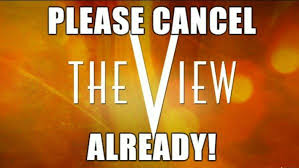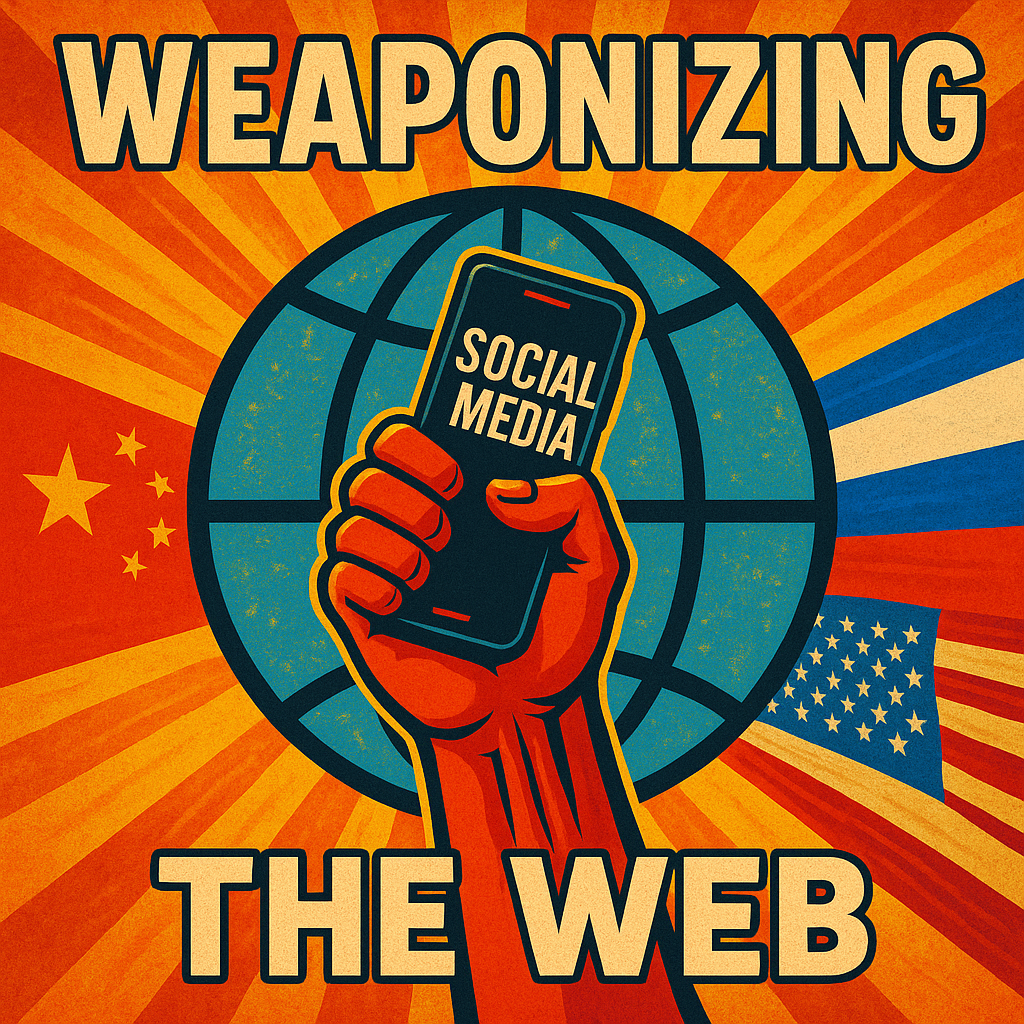How The View Reinforces Misandry and Divisive Rhetoric
Introduction: Entertainment or Ideological Echo Chamber?
The View – This article was placed in Must See TV, but only in the sense that you look at a car accident or a train wreck! The View, ABC’s long-running daytime talk show, has positioned itself as a voice of modern womanhood and political commentary. What began as a platform for diverse female perspectives has, over time, morphed into a predictable echo chamber for progressive orthodoxy. It claims to represent “the average American woman”—yet, its tone, rhetoric, and repeated controversies tell a different story.
For viewers looking for reasoned dialogue and respect for differing viewpoints—particularly men and conservatives—The View increasingly feels less like a talk show and more like a televised takedown.
The Peace Paradox and Media: Strength in Civility
As men, we understand the paradox of peace: that true harmony is protected and forged by strength. Just as international peace demands resolve and preparedness, media discourse requires emotional maturity, intellectual honesty, and a willingness to confront opposing ideas with integrity.
Unfortunately, The View often models the opposite. Rather than rising above partisanship, the hosts frequently indulge in mockery, misandry, and ideological bullying, leaving no room for serious disagreement or male representation. In short, strength is replaced by sanctimony, and dialogue is replaced by derision.
Whoopi Goldberg and the Holocaust: A Stunning Example of Historical Illiteracy
One of the most egregious moments came in January 2022, when co-host Whoopi Goldberg claimed on air that the Holocaust was “not about race”, but about “man’s inhumanity to man” (NPR coverage). Despite immediate backlash and educational outreach from Jewish organizations, Goldberg doubled down in subsequent interviews.
The remark demonstrated a profound misunderstanding of history, but more importantly, it showcased The View‘s tendency to speak confidently—even arrogantly—about subjects beyond their expertise. Goldberg’s comments weren’t just a gaffe; they were a symptom of an insular culture where ideological narratives override facts.
Five Wildly Out-of-Touch Moments on The View
Here are five times the co-hosts of The View revealed just how disconnected they are from mainstream America:
1. Joy Behar Mocking Christianity (2018)
During a segment on then–Vice President Mike Pence’s faith, Behar joked that hearing Jesus speak to you is “mental illness.” (The Hill)
Mocking faith is not brave—it’s condescending. The backlash was swift, but Behar’s apology seemed more about damage control than reflection.
2. Sunny Hostin Calling Latina Trump Supporters “Confused” (2022)
Hostin said Latina conservatives were voting against their own interests, labeling them “confused”—as if political diversity within minorities is inherently invalid. (Fox News)
Translation: You’re only allowed to think freely if you vote correctly.
3. The Kavanaugh Hearings Meltdown (2018)
During Brett Kavanaugh’s Supreme Court confirmation, The View co-hosts abandoned presumption of innocence entirely. The panel engaged in emotionally charged speculation and painted Kavanaugh as a symbol of “toxic masculinity.” (Mediaite)
Guilt by accusation is not justice—it’s dangerous. And for millions of men, this was a wake-up call to modern misandry dressed as activism.
4. Slamming Working-Class Americans as Uninformed (2020)
Discussing Trump voters in rural areas, Joy Behar described them as essentially “not educated enough to know better.” It was classic elitism cloaked in faux concern.
This contempt for the working class reflects a broader disdain for masculinity and traditional values—values often held by the very people they belittle.
5. Double Standards on Violence
During the 2020 riots, the show’s tone was sympathetic and at times dismissive of the chaos. But when right-wing protesters gathered (even peacefully), the hosts sounded alarm bells.
Violence is wrong—period. But The View only seems outraged when it’s politically convenient.
The View a Troubling Culture of Misandry.
The View’s Hostility Toward Traditional Masculinity Is Systemic—And Damaging
The View’s disdain for traditional masculinity isn’t just occasional or offhand—it’s woven into the fabric of the show. Traits like stoicism, strength, and ambition, once universally admired, are routinely recast as toxic or problematic. Male guests, especially those with conservative views, are frequently talked over, lectured, or reduced to caricatures. Even conservative women face mockery, but with men, there’s an added layer of condemnation—an implicit assumption that simply being male comes with inherent guilt. The message is clear: masculinity, as it has been understood for generations, is something to be deconstructed, not celebrated.
The language used on the show tells its own story. Terms like toxic masculinity are thrown around liberally, while words like fatherhood, honor, and sacrifice—cornerstones of masculine virtue—are conspicuously absent. This framing doesn’t just critique bad behavior; it pathologizes masculinity itself. Instead of acknowledging the positive role men play as protectors, providers, and leaders, the narrative reduces them to a collection of potential problems. The result is a skewed portrayal that ignores the countless men who embody strength with integrity, resilience with compassion.
Worst of all, this rhetoric doesn’t just alienate men—it vilifies them. By relentlessly focusing on the worst possible interpretations of masculinity, The View sends a demoralizing message to boys and young men: their natural instincts are suspect, their virtues outdated. In a time when male loneliness, depression, and suicide rates are soaring, this kind of rhetoric isn’t just unhelpful—it’s actively harmful. Rather than fostering understanding, it deepens divisions, leaving many men feeling like society no longer has a place for them. If we truly value equality, we should critique harmful behaviors without demonizing an entire gender.

What’s at Stake?
A show with The View‘s reach doesn’t just entertain—it influences. Millions of viewers, many of them women, absorb its worldview as a cultural barometer. When the show becomes a platform for ideological bullying and historical ignorance, it does real damage to public discourse.
According to a Pew Research Center study, media echo chambers increase political intolerance and tribalism. The View exemplifies this effect, discouraging honest debate and reinforcing stereotypes—especially about men.
The View, An Alternative Suggestion: Strength, Civility, and Balance
Shows like The McLaughlin Group, Real Time with Bill Maher, or The Rubin Report offer better models. They encourage rigorous disagreement without cancel culture or ideological purity tests. The View, by contrast, has become a stage for sanctimony and scorn.
True strength is not found in dominance—but in dignity.
We need cultural platforms that reflect that ideal—not just in word, but in tone, balance, and intellectual honesty.
The View – Myopic and Heavily Ideological: We Deserve Better
Men don’t fear strong women. We fear shallow rhetoric and cultural double standards that cast masculinity as a flaw to be fixed. The View could be better. It could host authentic debate, give space to conservative and male perspectives, and model mature disagreement.
Instead, it often chooses clicks over content, and outrage over insight.
And in doing so, it becomes not a beacon for dialogue—but a mirror of what’s broken in our culture.
At The Manly Arts, we believe in real strength—strength that defends truth, respects others, and builds bridges. Peace isn’t passive. It’s forged in fire, and held together by those strong enough to protect it.
It’s time for media to reflect that.




